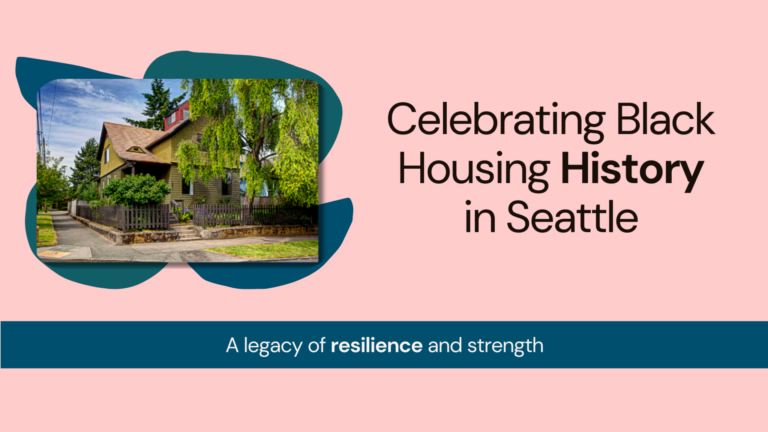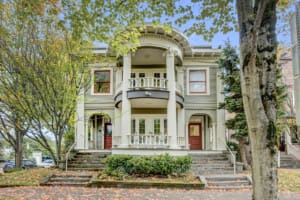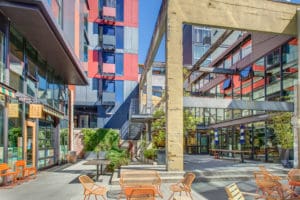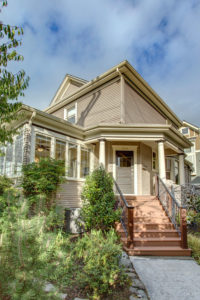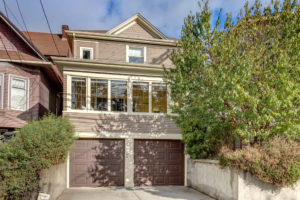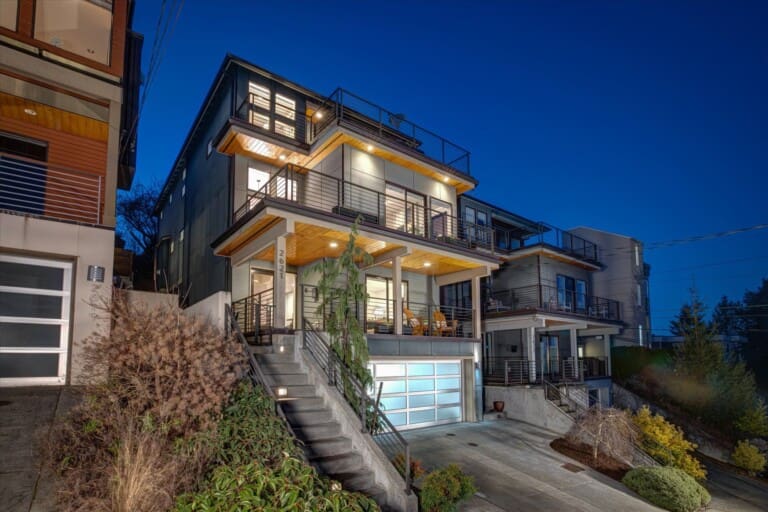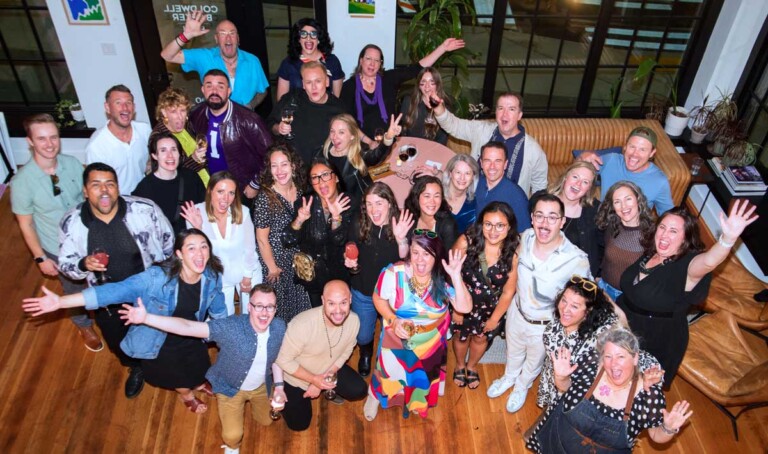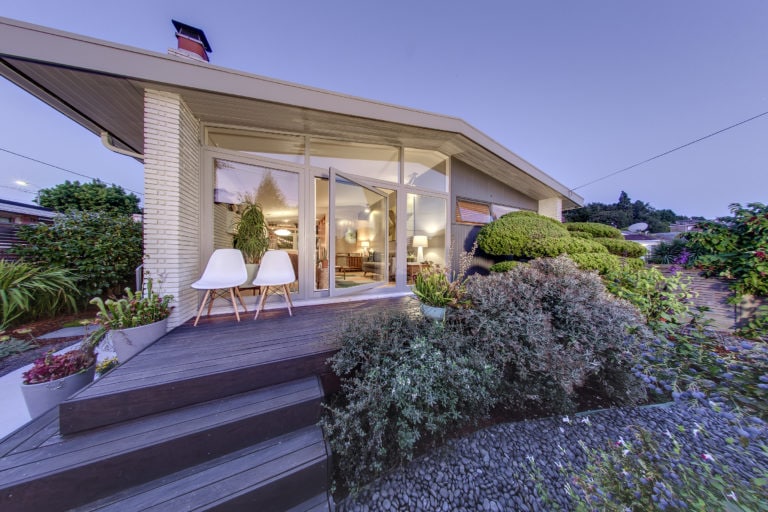Seattle’s Black Housing history is our collective history. Team Diva celebrates and honors Black History Month every year. Black folxs are our friends, family members, neighbors, clients, and a big part of our life. Not honoring Black History is not holding space for our collective community.
Black History and legacy are best seen in Seattle’s Black housing history. The resilience of Black homeowners in the face of systemic barriers by government entities, banks, and gentrification. In this blog, we are honoring the historic land purchases to modern-day initiatives, how Black homeownership has shaped Seattle’s neighborhoods, the push to create more Black homeowners, and how housing is a crucial issue in the fight for equity and justice.
Key Moments in Seattle’s Black Housing History
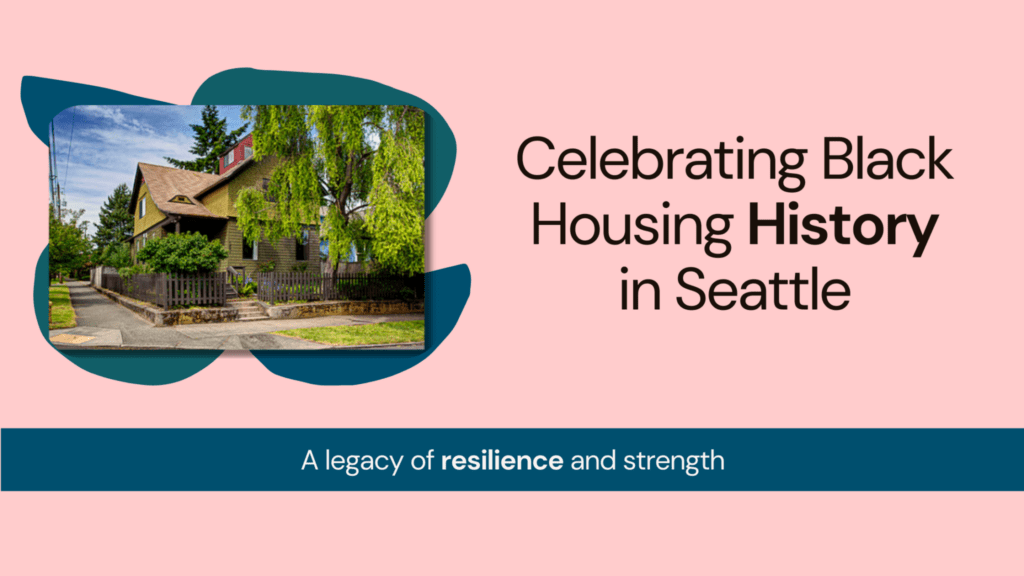
It was fascinating trying to research critical items for this blog. The history of Black homeownership in Seattle is scattered across multiple websites and archives. I believe that Seattle is STILL hiding the good and the bad history that has shaped Seattle’s Black Housing History.
Let’s start at the beginning
1882 – William Grose: A Pioneer in Black Land Ownership
In 1882, William Grose, a successful Black businessman, purchased 12 acres of land in what is now Madison Valley and the Central District. His investment and leadership helped establish the Central District as a thriving African American community. Grose’s contributions laid the foundation for Black homeownership in Seattle, creating a space where Black families could live and build generational wealth.
Learn more about William Grose here >
1947 – The Fight for Equal Real Estate Opportunities
The National Association of Real Estate Brokers, Inc. (NAREB) was founded in Tampa, Florida, in 1947 as a civil rights advocacy organization for African American real estate professionals. NAREB has played a crucial role in fighting discriminatory housing practices. They have and continue to advocate for fair housing policies nationwide. This includes Seattle!
1951 – The Legacy of Black Housing and Homeownership Through Wa Na Wari
In 1951, Frank and Goldyn Green purchased a home in the Central District, which today serves as Wa Na Wari. From the early 1960s to 2013, this home housed multiple generations of the extended Green family and their friends. Wa Na Wari was created in 2019 to continue that Black ownership legacy and to create a space of belonging. This organization is a community-driven art space is dedicated to reclaiming Black cultural spaces and emphasizes the importance of Black land ownership in gentrified neighborhoods. Wa Na Wari stands as a testament to the power of preserving Black heritage in Seattle.
Learn More About WA Na Wari here >
1959 – The O’Mearas Refused to Sell Their Home To A Black Family In Seattle
Back in the day, MOST real estate agents would not show houses in all-white neighborhoods to people of color.
In 1959, Robert L. Jones and his wife attempted to buy a house outside the Central Area. The owners refused to sell to the Jones family because of their color. What followed was a long fight for Fair Housing in Seattle and the state. The Jones family fought all the way to the Supreme Court on this issue. This case galvanized many people to advocate for Fair Housing which was eventually passed in 1968.
Learn More About The Fight For Black Housing Here >
1968 – Fair Housing Ordinance: A Step Toward Equality in Seattle’s Black Housing History
On April 19, 1968, just three weeks after the assassination of Dr. Martin Luther King Jr., Seattle’s City Council passed an ordinance defining and prohibiting unfair housing practices. This was a landmark moment in the fight against housing discrimination, helping to dismantle policies that had long excluded Black families from homeownership opportunities.
Learn More About the Long History to Pass Fair Housing In Seattle Here >
The 1970s – Redlining and Discriminatory Lending
The 1970s saw continued discrimination against Black homeowners. A homebuyer buying in historically Black neighborhoods was often denied traditional loans. This practice was called redlining. The banks refused to provide loans to historically Black neighborhoods in the Central District and Rainier Valley. This forced many Black families to seek high-cost loans from predatory mortgage companies, creating financial hardships and limiting homeownership opportunities.
Learn More About Redlining in Seattle Here >
1990s – Operation Weed and Seed: Displacement Under the Guise of Crime Reduction
In 1991, “Operation Weed and Seed” was introduced in Seattle. It was a strategy to “weed out” undesirable elements in our local community. In practice, this initiative disproportionately targeted Black families, leading to a decline in property values, an increase in gentrification, and the widespread displacement of Black homeowners. This program contributed to the ongoing erasure of Black cultural and economic presence in Seattle’s historic neighborhoods.
Learn More About the Impact of the Weed and Seed Program Here >
2023 – Addressing Historic Housing Discrimination
In May 2023, Governor Jay Inslee signed the Covenant Homeownership Act into law, launching a research study to document the complicity of government institutions in racial housing discrimination. This study aims to recognize the long-lasting effects of such discrimination and develop policies to increase homeownership opportunities for historically marginalized communities.
Learn More About the Covenant Homeownership Act Here >
2024 – The Covenant Homeownership Program: A Path to Equity
The Covenant Homeownership Program was launched in July 2024. The program seeks to promote homeownership among marginalized communities in Washington State. These communities include those impacted by government policies from the 1960s and onward. This program represents a critical step toward rectifying past injustices and creating pathways for Black families to build and retain wealth through homeownership.
Learn More About the Covenant Homeownership Program Here >
Learn About the Impact of Seattle’s Housing Practices Has Had On Our Clients
An incredible article was written in the Seattle Times that featured a couple of our Diva Dwellers aka clients.
Marlene Smick remembers sitting in the back seat of her parents’ car in 1958 as the family spotted an open house sign in Seward Park. Smick’s father, a second-generation Japanese-American who had been incarcerated during World War II, rolled down the window to ask about the property.
“The guy, a builder, said, ‘You’re welcome to come look, but I’m sorry I can’t sell to you,’” Smick said. “It was whites only.”
The discrimination that our client Marlene and other families endured in Seattle has had a lasting impact. Many of Seattle’s zoning laws follow the former redlining of the 1960s and 1970s. This impacts housing values, equity, and the ability of many families to build generational wealth. Seattle is forever formed by its housing policies and the history of Black housing and homeownership.
Team Diva Stands in Solidarity To Increase Homeownership In The Black Community
At Team Diva, we recognize that Seattle’s Black housing history is an essential part of our city’s legacy. We remain committed to advocating for fair housing, preserving Black cultural spaces, and supporting policies that promote racial equity in real estate.
Preserve Black Homeownership: Take Action Today
Black homeownership in Seattle has faced numerous challenges. The fight for equity continues. One way to support this cause is by donating to organizations like Black Legacy Homeowners, which work to preserve Black homeownership and combat displacement.
Learn About Black Legacy Homeowners Here >
Our Long Legacy of Celebrating and Honor Seattle’s Black History and Community
- Glimpses of Seattle’s Past And Present: “Everyday Black” at NAAM
- See Them Now: History Comes Alive At Three Powerful Seattle Exhibits
- How Can We Celebrate Juneteenth in Real Estate?
- Seattle Excellence: An Interview With Dani Tirrell, Creator of “Black Bois”
- Celebrating Black History Month with Black Excellence in Real Estate
- Black History Month – Black Seattle Arts Organizations We Love
This Black History Month, let’s honor the resilience of Black homeowners and continue the fight for housing justice in Seattle.


